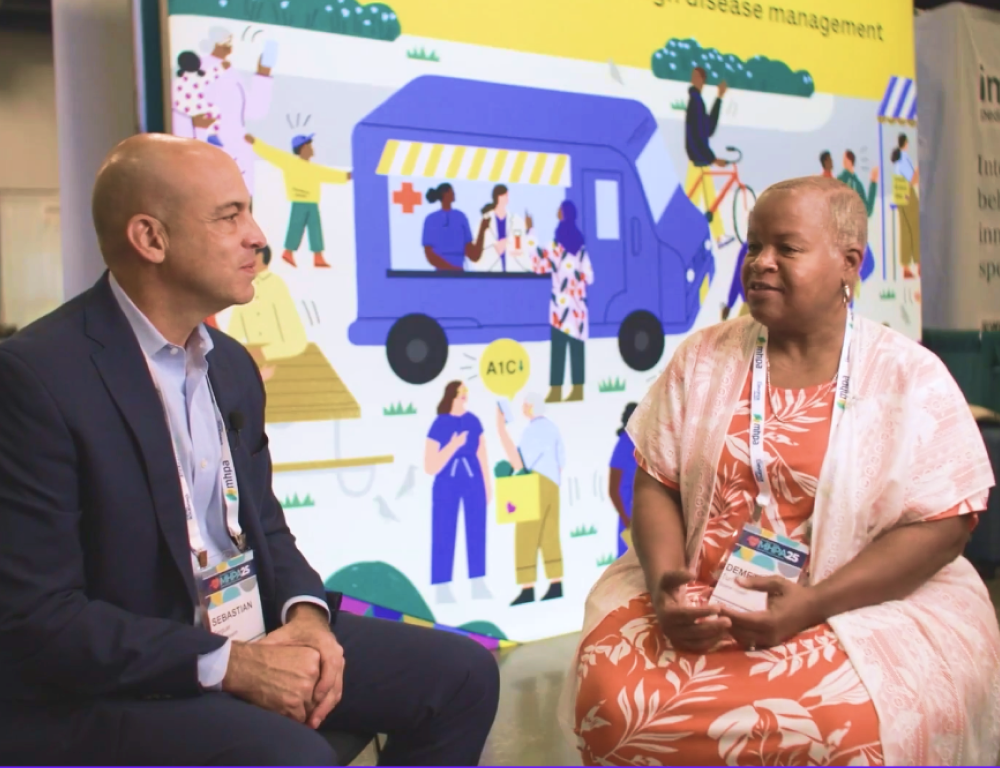Reflecting on the Impact of Video DOT on TB Care | World TB Day 2024

As we commemorate World TB (Tuberculosis) Day 2024, we’re reflecting on the evolution of video Directly Observed Therapy (video DOT) and its impact on TB medication adherence.
The Evolution of Video DOT
Video DOT began as an innovative solution to the challenges posed by traditional Directly Observed Therapy (DOT), necessitating that healthcare providers observe patients directly as they take their medication. Though effective, the logistical requirements for daily, in-person supervision created significant hurdles and costs, particularly for public health initiatives aimed at reaching remote, underserved, or marginalized communities.
Scene Health, known initially as emocha Health, has been championing video DOT for over ten years. Developed by infectious disease specialists and researchers at Johns Hopkins for HIV treatment in Uganda, the potential of our platform quickly expanded, leading to a revolutionary technology that has redefined medication adherence. In fact, last year, the CDC announced that video DOT is equivalent to in-person DOT for persons undergoing treatment for TB. The announcement cited studies from our partners, Johns Hopkins University and the Alameda County Public Health Department, and the Rhode Island Public Health Department, in the summary of evidence.
The Impact of Video DOT
Our video DOT platform has supported countless patients throughout the years, facilitating hundreds of thousands of video check-ins. Our collaboration with over 700 public health departments has been transformative, achieving adherence rates surpassing 90% and showcasing the real-world effectiveness of video DOT. Our partners at the Puerto Rico Department of Health (US) shared the impact video DOT had on their work:
"What this has done for us is profound. We have such limited staffing which means limited travel time to make patient visits. This has been a godsend. You are at the forefront of how technology improves healthcare. It's such an elegant system. It's truly changed the way we operate.” — Dana Thomas, Puerto Rico Department of Health (US)
This approach has proven indispensable in reaching populations that are typically difficult to serve, including the unhoused, rural, and drug-using individuals, ensuring they receive consistent and compassionate care. One patient who used our video DOT platform to manage her TB medication regimen shared the impact it had on her and her family this way:
I just want to thank you for your emocha (Scene) app because there are very few positive things about TB. It has been a beast. I was in isolation for 75 days away from my entire family, my six-year-old daughter, during the holidays. But (Scene) has actually been one of the things that I tell people has gone positive about my experience with TB because it’s been able to be a part of my daily routine. I can check in at night, quickly do it. The calendar makes it really easy to make sure I haven’t missed a dose; little reminders pop up. Thank you for creating something that has made this experience slightly better. Your app is great, but the experience is not so great. So thank you for creating something that makes me able to live my life while being in treatment with TB. — TB Patient
Recognizing Achievements and Looking Ahead
Awareness of video DOT has expanded, with it becoming a critical tool in public health departments’ fight against TB. This year, Dr. Maunank Shah, co-creator of video DOT and one of our clinical advisors, along with our following partners, have been named 2024 CDC U.S. TB Elimination Champions:
- The Los Dos Laredos Binational TB program
- The Texas Department of State Health Services
- Brittany Bolin, RN, a TB Nurse Case Manager for the South Carolina Department of Health and Environmental Control
- The public health nurses at the Monmouth County Health Department TB Clinic
- The New Mexico Department of Health
- The Rhode Island Department of Health
- Jackie Cuen from Somos TB
- The state of Iowa, including Amber Hunwardsen, RN with the Siouxland District Health Department, the Black Hawk County Health Department, and Dr. Cecilia Norris of the Iowa City Free Medical Clinic.
The need for innovative solutions like video DOT continues to grow, and so does our program because we know that addressing adherence is a multifaceted challenge. To that end, we’ve continued to expand our offerings by introducing video DOT review services to alleviate workforce shortage challenges and reduce administrative burdens for our public health department partners. Our goal remains steadfast: to empower patients to take control of their health, ensuring they receive the care they need in a manner that respects their unique circumstances and challenges.
On World TB Day 2024, we celebrate the significant progress made in the fight against TB through our partners' use of video DOT. We acknowledge the milestones achieved and the lives impacted, even as we recognize that so much work remains. Looking forward with optimism, we remain committed to bringing video DOT capabilities to more U.S. public health departments at the forefront of the fight against TB.






.png)
